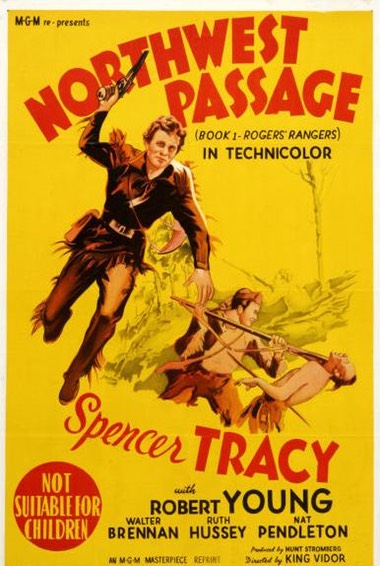After so long an absence, I had forgotten what a pleasurable read “Northwest Passage” is, or that the “passage” of the title of Kenneth Roberts’ novel probably has less to do with the fabled waterway traversing the continent than with the coming-of-age of its hero. Budding artist Langdon Towne returns home to Portsmouth, New Hampshire, after being suspended from Harvard, and runs afoul of corrupt local authorities. Langdon and his rowdy friends Cap Huff and Hunk Marriner realize that they need to disappear for a while to avoid certain, swift and severe punishment.
I did not have to delve far into “Book One” before finding the name I was after. In Chapter 9, Langdon Towne opens the seal on a pair of letters, one written to Langdon and Hunk, advising them where they must immediately head to elude capture, the other letter to be handed to one of the officers they might encounter. The cover letter reads in part:

“Go to Crown Point and give the enclosed letter to Col. Zaccheus Lovewell or Maj. Rogers. Either of them can get you in the army. All the fighting is over, and you’ll have a good time, probably nothing to do but catch trout and hunt raccoons.”
“Be careful of that other letter,” Hunk said. “Sam’s a Mason and he’s put Masonic signs in it. Lovewell and Rogers belong to St. John’s Lodge, here in Portsmouth; and when one Mason makes a sign at another Mason to do something, he’s supposed to do it. My mother says that’s why people join the Masons - so to get other people to do favors for 'em.”
The Zaccheus Lovewell mentioned in “Northwest Passage” was not Thomas Lovewell’s grandfather, who would have been one year old at the time, but the Zaccheus Lovewell who was the younger brother of Captain John Lovewell, Thomas’s great-great-grandfather. Col. Zaccheus Lovewell had been put in charge of a regiment of a thousand men during the French and Indian War, battling the outnumbered French and their much more numerous Indian allies. Roberts nicely summarizes the stakes of the contest:
The prize for which they struggled was one that aroused the cupidity of every king in Europe; and the King of France and King of England would gladly have sacrificed the life of every general in their employ if by so doing they could win. That prize was the ultimate ownership of the Ohio Valley, with its endless forests, fertile plains, tremendous rivers and wealth of furs - the richest empire for which two nations ever contested.
Spoiler alert: The English colonists would win, with the help, not only of Captain John Lovewell’s brother Col. Zaccheus Lovewell, but the fallen captain's son, Nehemiah, born eight months after his father’s death. Nehemiah would later fight in the Revolutionary War alongside his own son, the boy who had been a year old in 1759, the one who was also named Zaccheus. The son of this Zaccheus, Moody Bedel Lovewell, may have been the first member of the family to venture into the Ohio Valley, perhaps thinking that, since his ancestors had helped to win the prize, he might as well claim his share of it.
It was a prize that would suffice for only a little while, of course. Lands further west would one day beckon, but they would be for a future generation to explore.